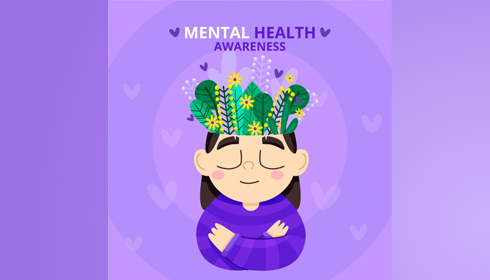 Designed by Freepik" title="Representative Image Designed by Freepik" class="blog__post-image embed-responsive">
Designed by Freepik" title="Representative Image Designed by Freepik" class="blog__post-image embed-responsive">
Nature-Based Intervention Study Reveals Mixed Results for Children's Mental Health
A recent investigation into the impact of a nature-based intervention program aimed at reducing mental health symptoms in primary school children produced varied outcomes. The 12-week initiative in Quebec, Canada, used outdoor educational experiences to address growing concerns about children's mental well-being. In light of the growing global focus on nature-based therapies, this study revealed that there were no notable enhancements in symptoms like anxiety, depression, or behavioral challenges among the children involved.
The Open Sky School Program (École à Ciel Ouvert) includes 33 schools, 53 teachers, and over 1,000 fifth- and sixth-grade pupils. The intervention group spent two hours per week in a nearby park or woodland area, participating in activities that blended traditional curriculum with mindfulness, philosophy, and art therapy. A control group resumed their normal indoor classes.
The major goal was to examine changes in students' mental health using the Social Behaviour Questionnaire (SBQ), which included internalising symptoms (such as anxiety and depression), externalising signs (such as aggression), and social issues. Per-protocol and intent-to-treat analyses found no meaningful difference in symptom reduction between the intervention and control groups. However, children with higher baseline mental health symptoms showed a modest reduction, suggesting potential benefits for those already at risk.
As the world grapples with the growing issue of childhood mental health, the World Health Organization (WHO) reports that 10–20% of children worldwide suffer from mental health disorders. This epidemic has been rising for decades, with differing prevalence rates across regions.
In North America, the situation is especially bad, with approximately one in every five youngsters in the United States suffering from diagnosable illnesses such as ADHD, anxiety, or depression. Similarly, in Europe, countries such as the United Kingdom and Germany are experiencing a large increase in mental health issues, with approximately 15% of children exhibiting symptoms of anxiety and despair.
The situation is also troubling in Asia, where nations such as India and China are seeing a significant increase in childhood mental health disorders. Academic competition and growing urbanization are putting a strain on young minds, affecting up to 12% of school-aged youngsters.
In contrast, experts warn that the shame associated with mental health concerns and inadequate access to care likely lead to underreporting of these figures, despite lower rates of childhood mental illness in Africa and Latin America. This disparity underscores the need for improved awareness, resources, and support to address the global mental health epidemic among children.
Despite the appeal of nature-based interventions, particularly as a low-cost and accessible strategy, the study reveals that their immediate benefit in lowering mental health symptoms may be limited. Experts believe that the advantages of such programs may be subtle and long-lasting, particularly for children with pre-existing mental health issues. Dr. Aylin Kılınç Uğurlu, a researcher on childhood mental health, observes, "While nature-based interventions might not show immediate reductions in symptoms, they could play a preventive role, especially in children who are already showing signs of distress."
The limited success of this 12-week intervention underscores the necessity for multifaceted methods to address the growing mental health epidemic among youth. School-based initiatives must be combined with other preventive measures, such as frequent mental health exams, early treatments, and community-based support networks.
As the global prevalence of childhood mental illness rises, research like this is critical for improving interventions and developing new techniques. While nature-based activities may not provide an instant solution, they remain an interesting topic for future research, particularly for at-risk youth, and they offer a possible tool in the larger fight against the mental health epidemic.
Meta Description: